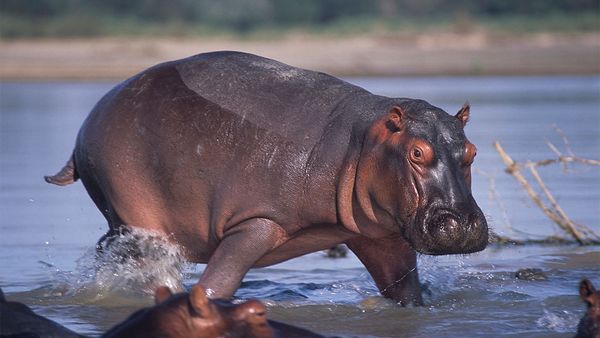During the period that the hippo's secretions are at their orange-red peak, some could mix with the milk, giving it a pinkish hue.
While this is possible, it's also pretty unlikely, as baby hippos are very efficient eaters. A baby hippo grips its mother's nipple between the tongue and the roof of its mouth, forming such a tight bond that it can even nurse underwater if it wishes.
Reports of pink hippo milk are limited not only by the low odds that these two fluids will mingle, but also thanks to the difficulty of getting a close look at the hippo's feeding process. Female hippos are most likely to attack when they are pregnant or taking care of their young, and few people are brave enough to tangle with a mad 3,000-pound (1,361-kilogram) female hippo just to get a glimpse of her milk.



